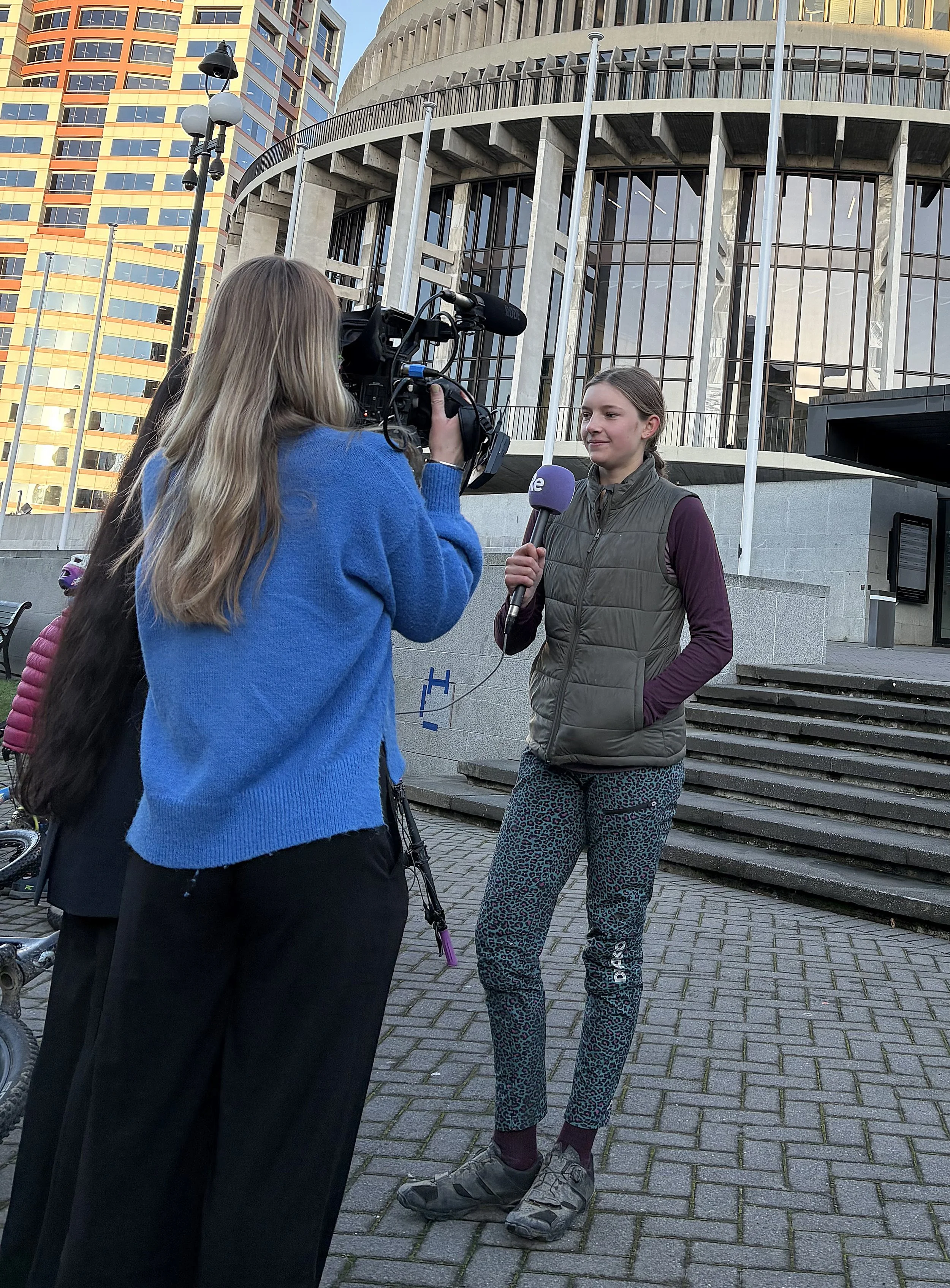Seeking a sporting chance
Amelia Twiss (13) and George Fisher (12) on the Old Coach Rd mountain bike trail.
The journey of Amelia Twiss (13) and George Fisher (12) to draw attention to what homeschoolers see as unsporting treatment has resulted in a very public lesson in politics and geography.
By Chris Marshall
Keen members of the Taupō Mountain Bike Club George, from Kinloch, and Amelia, who splits her time between Taupō and Tauranga, recently completed a 750km bike ride to Parliament.
Their 10-day journey, covering 11,000m of elevation, ended with them presenting a petition to Youth Parliament 2025 requesting all students be included in student sport.
Despite wide media attention, their families are guarded about whether change will occur quickly.
As Toni, Amelia’s mother explained the issue, currently homeschooled students are unable to be officially included in certain events at secondary level.
“These aren't even run by schools… clubs run the events on behalf of the school. We’re not trying to get into the local school’s cross country. We're trying to just be part of the events that are organised for all students in New Zealand.”
The pair got involved with the issue due to Amelia’s experience in recent North Island secondary schools’ mountain biking competitions.
Her second (2024) and third enduro event placing (2025) saw her denied medals and a place on the podium because she’s home schooled.
And while George had no problem from Cycling New Zealand, when riding for his Taupō club team and winning the national Under-15 cross country title earlier this year, he didn’t get his gold and silver medals after crossing the line first last year, and second this year, at the NISS cross-country competition.
“We just thought that there was some rule in cycling where we couldn't get medals and then we kept digging in a little bit deeper,” Amelia says.
Amelia gives an interview outside the Beehive.
“Some kids can't even play the sports… this is a lot bigger than us not being able to get medals.”
George says it is not just home schooled children that miss out because it can also affect kids who go to little schools because they’re not allowed composite teams.
“Their school might do rugby … and they might be really into soccer, but they can't because there's not enough kids to field a team.”
While at primary and beyond secondary, sport is run by clubs, says Toni. At secondary level schools take it over.
“We said (to School Sport NZ), why don't you just change it to student sport? And they said, ‘no, we work for the schools. We protect the schools.’ And they've actually put that in writing. So the school comes first, the protection of the school comes first, before the sport and the athletes.”
SSNZ sat within the Ministry of Education, said Toni, making it difficult to access them through the Ministry of Sport.
“HESSA, the Home Educated Student Sports Association, was formed so that we can have a seat at that table and they have still said no… The problem is that group has a monopoly over sport.”
Inconsistent application of the rules means sometimes homeschoolers got on the podium but sometimes they were “given some sort of weird second equal… It puts a huge amount of pressure on the organisers who are just clubs to come up with a system of discrimination they are okay with,” Toni says.
“It's taking the focus off the sport, off the enjoyment of the sport and the kids in the sport.”
Arguments that homeschoolers would form super teams won’t eventuate, she says.
“The reality is most (homeschool) families are sitting on one income. These guys compete against kids on $18,000 bikes …There's a raft of ways that you can look at inequality. Where you receive your schooling and how you receive your schooling is not one of those. If you start drilling into that, I think that opens up a whole can of worms.”
As for the two riders it’s been an education in geography, the political system and how to run
an email writing campaign.
And a ride they are keen to redo if things are the same next year.
A statement from Mike Summerell, chief executive SSNZ, says the organisation is reviewing its eligibility criteria for national school sport events, including policies relating to home-schooled students.
“SSNZ continues to extend participation opportunities to home-schooled students and work in good faith to support inclusive sport where possible.
“Despite these efforts, we have faced increasing demands from home-schooled organisations. “Recent public commentary on the topic has been disappointing and, in our view, unjustified.
“These developments have tested the good faith that we, on behalf of our member secondary schools, have shown to date.”
The review outcomes would be communicated to all relevant parties in due course, the statement says.
“We understand this situation is frustrating, and we acknowledge the concerns of the small number of students affected.”


